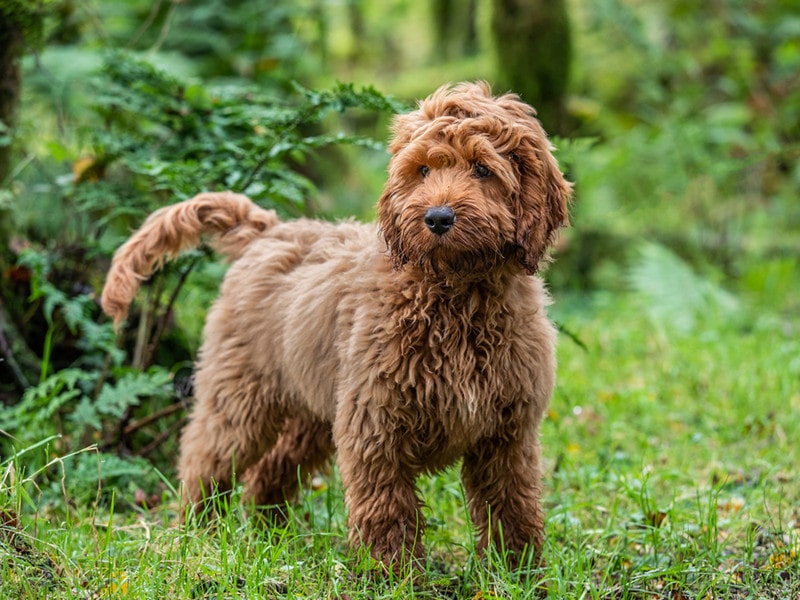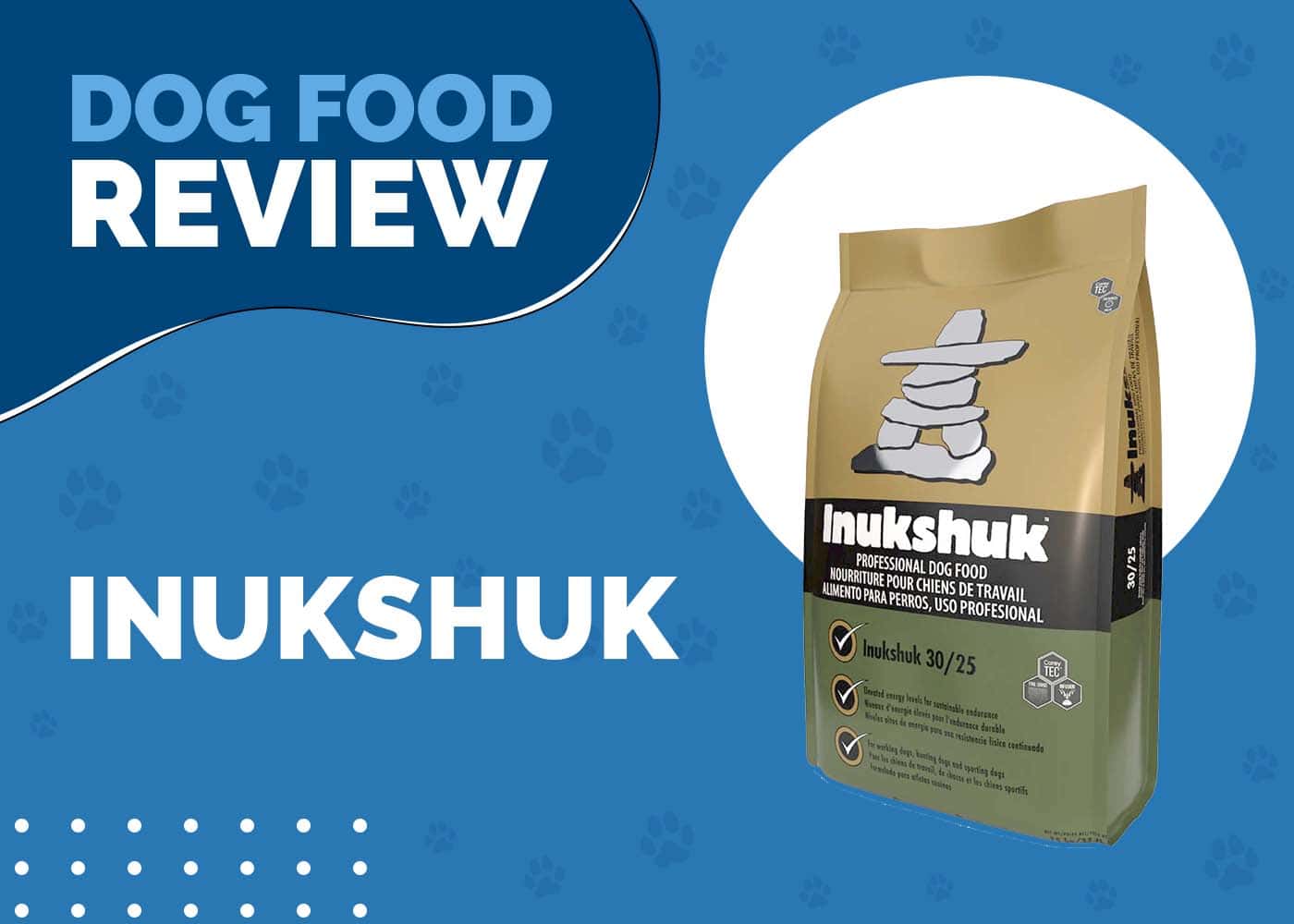Meat Tenderizer for Dogs: Is it Important for Dogs? Facts & FAQ

Updated on
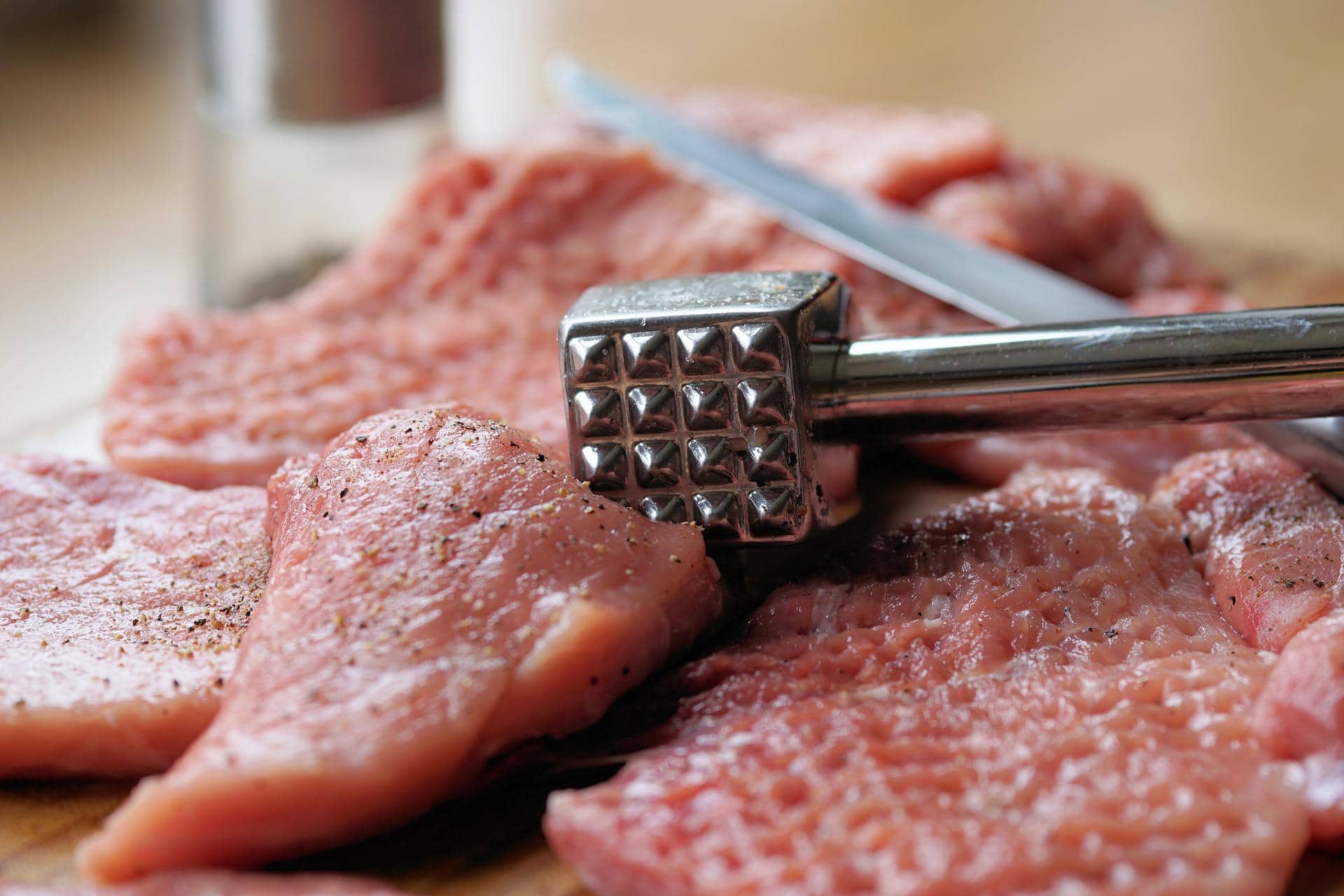
Click to Skip Ahead
Many people think it sounds strange to give their dogs meat tenderizer, as this is not a practice everyone has heard of. In spite of these uninformed doubts, there are several reasons why certain dog owners should give meat tenderizers as a food additive some thought. Coprophagia is the veterinary term for eating poop. This strange behavior is, unfortunately, not that unusual. Dogs should never be allowed to eat their own poop. They share our homes, and their saliva ends up on our floors and furniture—even our hands and faces! If your dog suffers from coprophagia, your vet may recommend adding meat tenderizer to their food.
Read on to find out all about this cunning chemical solution to an icky problem, what a meat tenderizer is, plus how to safely incorporate it into your canine companion’s diet.
 What is Meat Tenderizer?
What is Meat Tenderizer?
A meat tenderizer is a product that is used to make meat softer. It is generally either powder or sometimes a liquid that is mixed in with the meat. A meat tenderizer is made up of a variety of active enzymes which break down the proteins in meat, making it more tender. These enzymes can be extracted from plants or fruits, or they can be produced through fermentation.
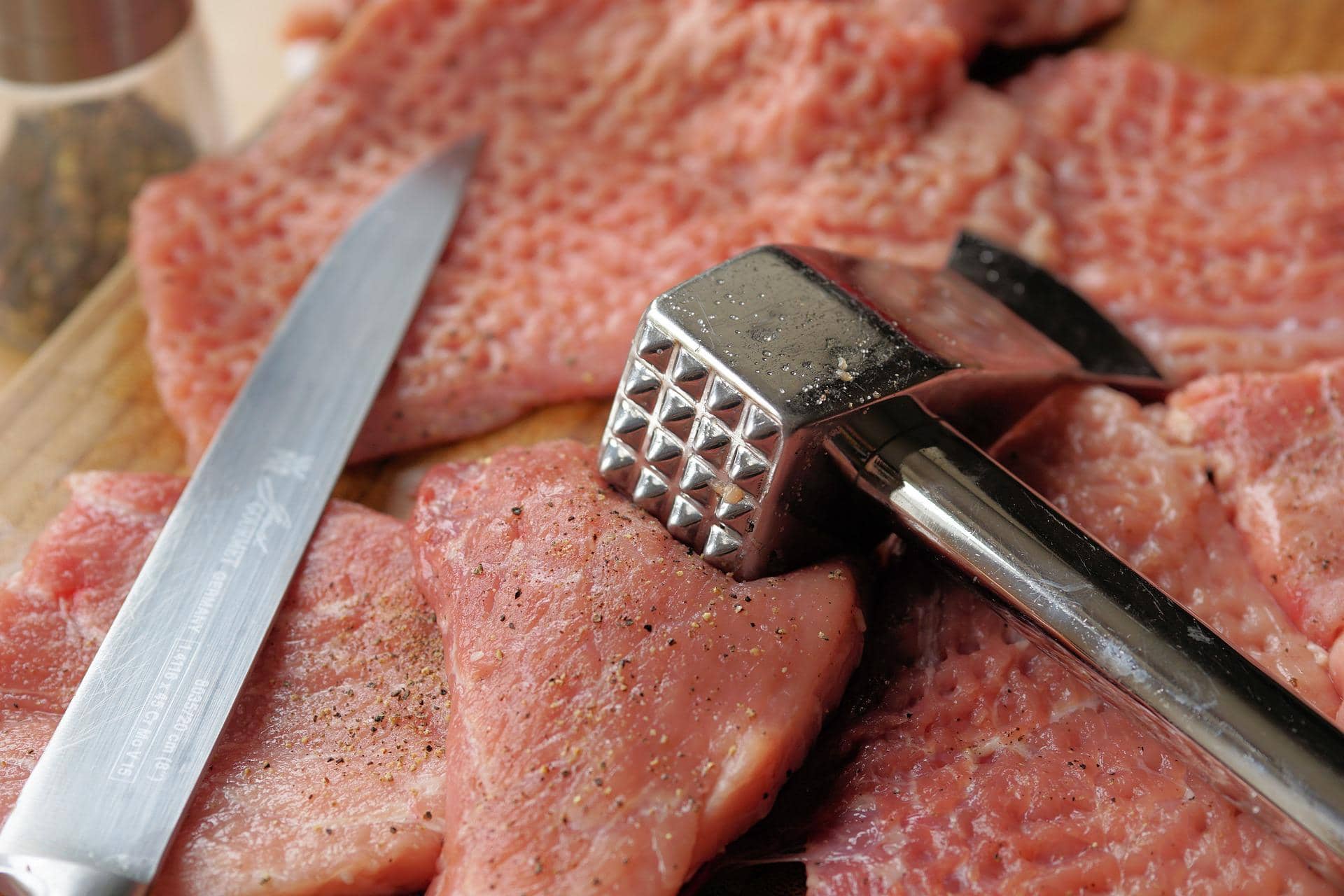
Avoiding Seasonings
If you intend to feed your dog meat tenderizer, the most important thing is that it should be unseasoned. Seasoned meat tenderizers may contain toxic ingredients. Many seasoned meat tenderizers contain garlic or onions, both of which are not good. Before buying any seasoned meat tenderizer, always double-check to ensure that these ingredients are not in it. There are a variety of seasonings that are safe for human consumption, but not all of them are safe for dogs. Dogs have a much more sensitive digestive system than humans, so it’s important to avoid giving them seasonings that could upset their stomachs.
What Meat Tenderizers Are Safe for Dogs?
All of the unseasoned meat tenderizers are safe for dogs to eat in small quantities. Still, it’s crucial to remember that meat tenderizers are safe for dogs only if they are used in the correct concentrations. If too much of the tenderizer is used, it can cause stomach upset or even poisoning in dogs. It’s important to keep meat tenderizers out of reach of dogs and to use a sparing hand when you add them to food.
Consult with your veterinarian to decide how much to add to your dog’s bowl, as the right amount will depend on their breed, size, weight, age, and any health problems they may have.
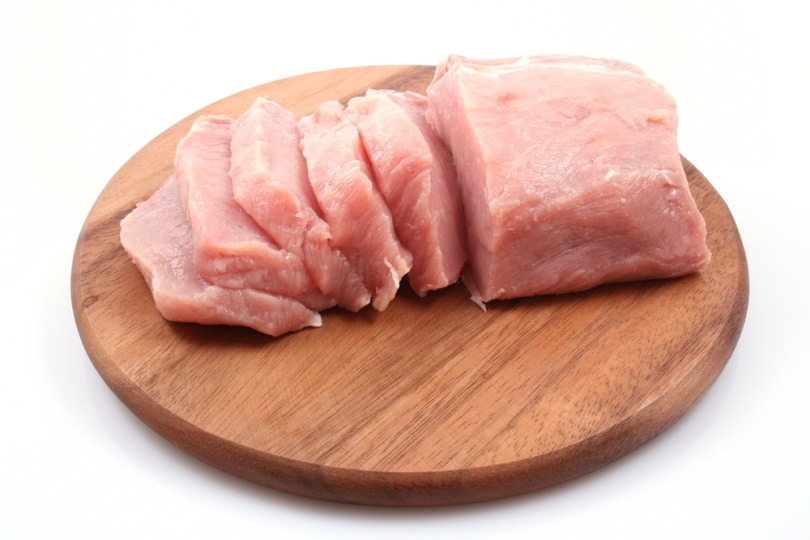
1. Enzymes
There are a variety of meat tenderizers on the market that break down the proteins in meat. Many meat tenderizing enzymes are derived from plants. The most common types of meat tenderizers contain plant-derived papain and bromelain. Other enzymatic meat tenderizers, such as pancreatin and amylase, are derived from animal or microbial sources. Using these enzymes may be helpful for a dog suffering from coprophagia, but what exactly are you adding to your dog’s diet?
Let’s take a closer look at some of the common ingredients in unseasoned meat tenderizers.
2. Sodium & MSG
Meat tenderizers often contain lots of sodium and monosodium glutamate (MSG). Sodium (or salt) can be harmful to dogs, but only if they eat too much of it. MSG is safe for dogs to consume, and in fact, it is often used in pet food products as a flavor enhancer. Too much sodium can cause dogs to become dehydrated. Excessive levels of sodium can in some cases it can even be fatal.
If your dog drinks plenty of water, however, the sodium and MSG levels in meat tenderizer should not cause any problems for them. These ingredients may make your dog thirsty, but as long as they are able to get a sufficient amount of fluids, they shouldn’t become dehydrated. That being said, if you see signs of dehydration in your dog, you should take them to the vet immediately.
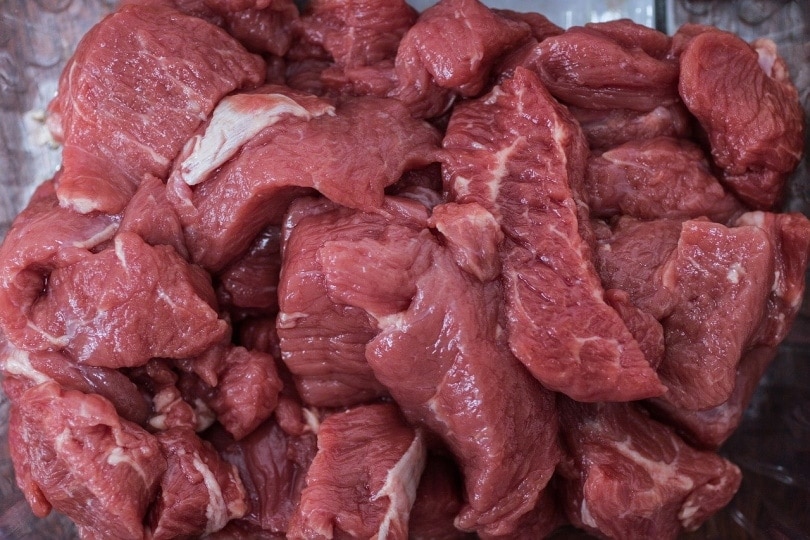
3. Papain & Bromelain
Meat tenderizers most often contain plant-based enzymes including papain which is derived from the papaya fruit, and bromelain, which is derived from pineapples. While both are safe for dogs to consume, it is always best to speak to your veterinarian first to get their opinion. Most vets consider papain and bromelain safe for dogs to consume in small quantities.
What Causes Coprophagia in Dogs?
Coprophagia is a behavior in which dogs consume their own feces or the feces of other animals. The cause of this behavior is unknown, but there are several theories. Some people believe the cause of this behavior is nutritional deficiencies. Dogs who are deficient in certain nutrients may eat their feces as a way to try to get those nutrients back into their system. As gross as it may seem to us, dogs may begin consuming their own waste, or the waste of other animals, as a way to fulfill certain nutritional needs, such as obtaining additional protein.
There are a variety of other potential causes of coprophagia in dogs, including intestinal parasites, and psychological factors such as anxiety or boredom, while others believe that it is a learned behavior.
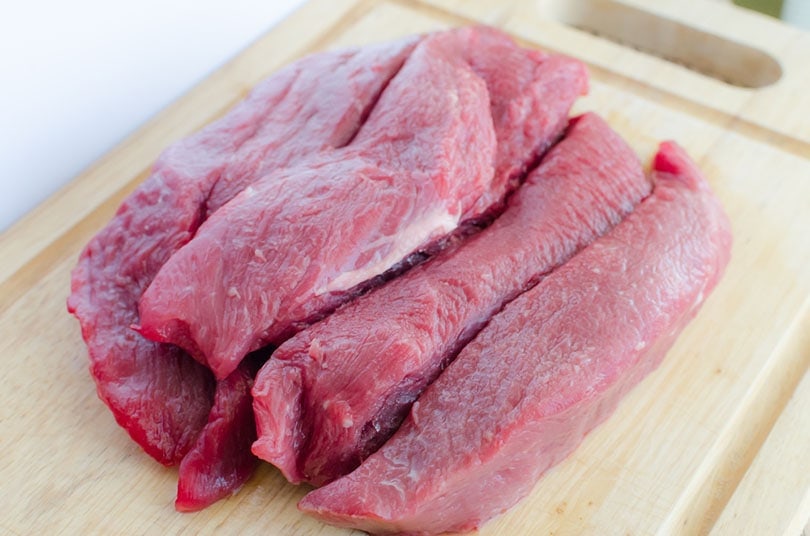
How Does a Meat Tenderizer Stop a Dog From Eating Their Own Feces?
There are a few ways to stop a dog from eating their own feces and you should always discuss your approach with your vet before beginning to address the behavior. One common way to address this issue is to use a meat tenderizer. The tenderizer breaks down the proteins in the feces, making it less appetizing to the dog.
Dogs go wild for high-protein foods—that’s why they love meat. As your dog’s food travels through their digestive tract, the meat tenderizer breaks down the protein so that less protein is carried in their poop. This means there’s less protein in their feces, so they won’t be tempted to eat it as much. It is also speculated that the chemicals in the meat tenderizers will make the feces taste bad to the dog and they will not want to eat it.
 Final Thoughts
Final Thoughts
Although there are no documented risks, make sure you use meat tenderizer in moderation. Water should be available to your pup at all times since they may crave water after consuming meat tenderizer. Remember to never buy seasoned tenderizer as it may contain onions or garlic and poison your dog. If this does not alleviate your dog’s coprophagia, you should let your vet know. You will need to work together to come up with another way to address your dog’s poop-eating problems.
Featured Image Credit: Pixabay
 What is Meat Tenderizer?
What is Meat Tenderizer?
